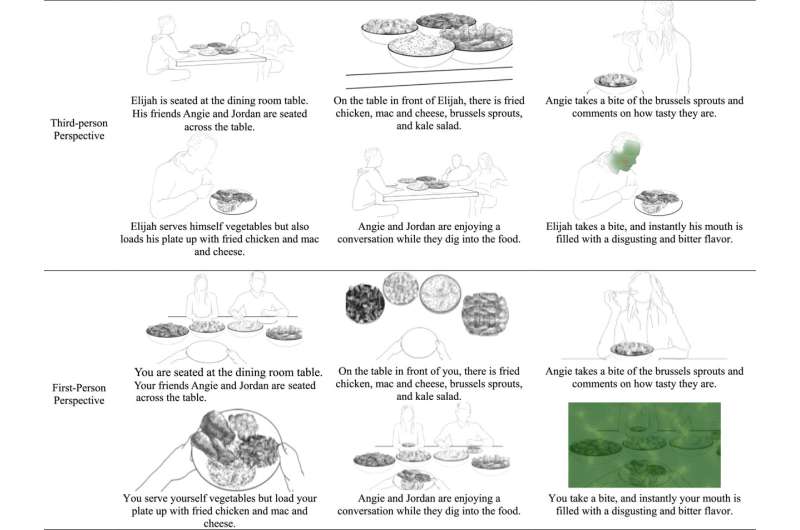This article has been reviewed according to Science X's editorial process and policies. Editors have highlighted the following attributes while ensuring the content's credibility:
fact-checked
peer-reviewed publication
trusted source
proofread
Education about genetic causes of eating behavior found to affect attitudes toward people with higher weight

Education about gene-by-environment interaction (G X E) causes of eating behaviors can have beneficial downstream effects on attitudes toward people with higher weight. A recent study included in the Journal of Nutrition Education and Behavior found that participants who received education about G X E concepts reported higher empathy and held fewer stigmatizing attitudes toward individuals with higher weight. G X E is when two different genotypes respond to variations in the environment in two different ways.
"Discriminatory attitudes against people with higher weight have been observed at comparable rates to racial and gender discrimination and are often more overt because weight stigma is viewed as a more socially acceptable form of negative bias," says corresponding author Susan Persky, Ph.D., Social and Behavioral Research Branch, National Human Genome Research Institute, National Institutes of Health, Bethesda, MD.
"However, weight has a sizable genetic component. Our study found that increasing education about the role of genetics in eating behavior may therefore help to alleviate weight stigma by reducing the extent to which individuals are blamed for their weight."
Participants were recruited via the online platform Prolific and were randomly assigned to watch an educational or a control video. Participants then watched a set of vignette scenarios that depicted what it is like to have a predisposition toward obesogenic eating behaviors from either a first-person or third-person perspective. Participants completed questionnaires measuring G X E knowledge, causal attributions, weight stigma, and empathy post intervention.
Participants who watched the educational video demonstrated greater G X E knowledge, reported higher empathy toward the characters in the vignette scenarios and held fewer stigmatizing attitudes (notably blame) toward individuals with higher weight. Exploratory mediation analyses indicated that the educational video led to these positive downstream effects by increasing the extent to which participants attributed genetic causes to eating behaviors.
Communicating G X E causes of eating behaviors to the public is a useful way to improve attitudes toward people with higher weight. Therefore, the authors envision the potential for similar G X E education to be broadly disseminated as part of public health campaigns. Moreover, a greater understanding of these concepts may help improve patient-provider interactions around healthy eating and weight.
"Focusing on G X E causes of eating may help tackle entrenched weight stigma among the general public and health care providers," suggests the study's lead author Alison Jane Martingano, Ph.D., National Human Genome Research Institute, National Institutes of Health. "This research provides initial evidence that future educational interventions may benefit from focusing on eating behaviors, specifically, when attempting to improve attitudes toward people with higher weight."
More information: Alison Jane Martingano et al, Using Educational Videos and Perspective-Taking to Communicate Gene-By-Environment Interaction Concepts about Eating Behavior: Effects on Empathy and Weight Stigma, Journal of Nutrition Education and Behavior (2023). DOI: 10.1016/j.jneb.2022.09.005




















